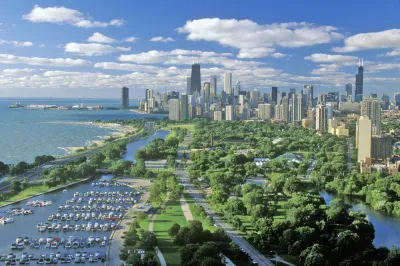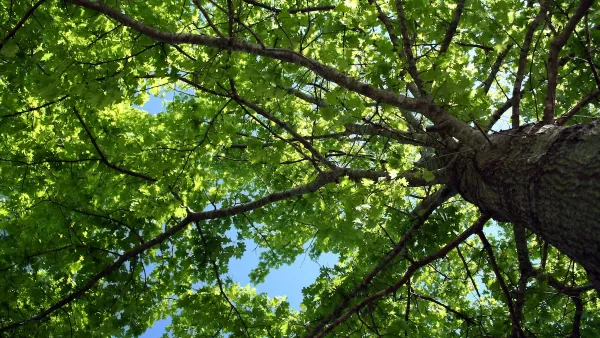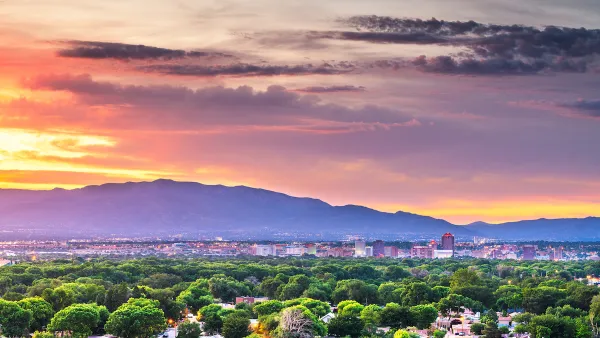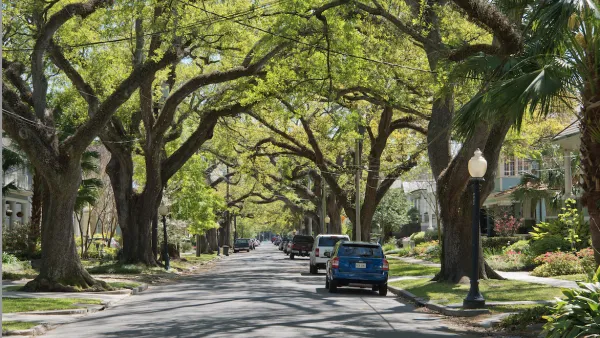Advocates for urban greening are asking the city to boost its tree planting efforts and protect existing trees, which are a key tool for fighting the effects of climate change and worsening heat waves.

In a commentary piece in the Chicago Tribune, Daniella Pereira, vice president of community conservation at Openlands, and Naomi Davis, founder and CEO of Blacks in Green, call on Chicago’s leaders to make a stronger commitment to protecting the city’s tree canopy through comprehensive efforts to preserve existing trees when possible and ensure equitable distribution of resources across the city’s neighborhoods.
It is a disgrace that while $46 million worth of street trees will be planted, our existing healthy and large canopy trees continue to be removed through aldermanic privilege and a Department of Water Management that follows practices contrary to the mayor’s edict. Chicago already has a low tree canopy, and with the removal to planting ratio being 2 to 1, 75,000 trees will not even replace the canopy of what continues to be removed.
Even with tree planting efforts, the authors point out that “Without saving the existing canopy, it will be decades for these young trees to offer the same environmental and health benefits to communities that need them the most now.” The authors claim that “Chicago’s Department of Water Management continues to remove all trees in their way. These trees, the one appreciating asset we have in the city, are then not replaced. In all other cases, when trees are requested to be removed, a forester inspects the tree and, if healthy, denies the request.”
According to Pereira and Davis, “The city needs to have a driver of a strategic urban forestry management plan and a tree canopy goal strategy as a minimum, for each community area.” Furthermore, “That strong vision should be followed by strong tree protection ordinances, policies, interdepartmental communication and public engagement.”
FULL STORY: To fight climate change, Chicago should maintain, strengthen its tree canopy

Analysis: Cybertruck Fatality Rate Far Exceeds That of Ford Pinto
The Tesla Cybertruck was recalled seven times last year.

National Parks Layoffs Will Cause Communities to Lose Billions
Thousands of essential park workers were laid off this week, just before the busy spring break season.

Retro-silient?: America’s First “Eco-burb,” The Woodlands Turns 50
A master-planned community north of Houston offers lessons on green infrastructure and resilient design, but falls short of its founder’s lofty affordability and walkability goals.

Test News Post 1
This is a summary

Analysis: Cybertruck Fatality Rate Far Exceeds That of Ford Pinto
The Tesla Cybertruck was recalled seven times last year.

Test News Headline 46
Test for the image on the front page.
Urban Design for Planners 1: Software Tools
This six-course series explores essential urban design concepts using open source software and equips planners with the tools they need to participate fully in the urban design process.
Planning for Universal Design
Learn the tools for implementing Universal Design in planning regulations.
EMC Planning Group, Inc.
Planetizen
Planetizen
Mpact (formerly Rail~Volution)
Great Falls Development Authority, Inc.
HUDs Office of Policy Development and Research
NYU Wagner Graduate School of Public Service




























